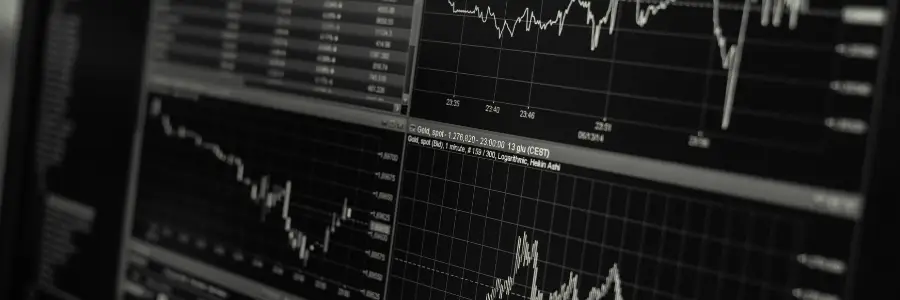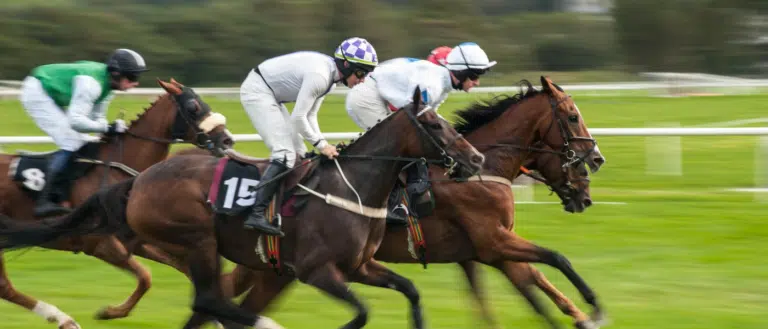Sports Betting and Trading Compared: What’s The Difference?

Today, we’ll be comparing sports betting to trading – where they are similar, where they are different and which skills are useful in both.
As sports betting continues to go mainstream, we’re seeing certain sentiments grow in popularity of late.
Two examples come to mind:
Legalized sports betting is like a modern-day gold rush.
Sports betting is game changer for leagues and fans alike.
These are fairly straightforward observations that are easily supported by facts and figures.
Sports betting is in fact a massive industry, and it is only poised to get bigger. Conventional wisdom suggests that legal betting will increase interest in sports here in the US and studies support the notion. Both of the above sentiments are supported by facts, figures and studies.
There’s another type of belief that isn’t exactly new, but one that we’ve seen pop up a bit more in recent times:
Betting shares certain traits with stock trading, but with games and athletes rather than companies and shares.
The sentiment that sports betting and stock trading are similar is not uncommon, but it’s a bit more debatable than positing that legalization is a big deal for leagues and fans.
It is true that sports betting and trading share certain similarities, not to mention both rewarding similar skillsets for those who take each activity seriously. That said, we’ll draw a line at sports betting ever providing the kind of hedge fund-like opportunities provided by trading. Sports betting can be profitable, but the upside is limited and the risks are greater than found in investing.
Now, let’s take a look at the similarities between sports betting and trading, and where the two activities diverge.
There Are Plenty of Natural Tie-Ins
From an analytical perspective, sports betting and stock trading are both numbers-driven pursuits. Breaking down a balance sheet and profit and loss statement for a publicly traded company shares a lot in common with analyzing things like recent form and sports statistics.
The parallels continue on the emotional side of the equation. Experienced traders know very well how easy it is to become enamored with a certain product or company. While it is good to invest with confidence, it is even more important to make sure one doesn’t contract a case of tunnel vision or lose track of the very real risks involved with buying into any one company.
When it comes to sports, it is also quite common to become attracted to a certain team, and we’re not just talking about those in which you have a rooting interest. A team that seems to consistently outperform expectations or pull games out at the wire can lead to feelings of confidence about how that team will perform going forward. We can consider this a “gut feel” when it happens.
We can also easily drill down into the heart of the matter for both activities: taking some of your hard-earned dollars and placing them down in hopes of greater returns. Buying a stock in anticipation of a spike in price is akin to placing a bet on a team that you think will win.
Going even further down the rabbit hole, it wouldn’t be such a stretch to compare day trading to in-play betting. Both speed things along, give the trader or bettor more action and reward quick thinkers.
Skills for Both Align Well
So, what does it take for success in trading stocks? How about when it comes to sports betting? This is another area in which we can find certain similarities (to a point).
Trading and betting both reward two key skills in particular.
First, both reward those who are willing and able to take an analytical approach to the business. There is a place for gut feelings, but the reliability of such feelings is highly questionable except for the most experienced traders and bettors.
People who study trends, dig behind the headlines and who truly seek to understand the underpinnings of why things work the way they work are those with the best chance of success. Furthermore, the analytical approach requires patience. Success in sports betting and trading only comes after many setbacks and many hours of hard work.
Second, both reward emotional control. Emotional control is absolutely mandatory for success because sports betting and trading are inherently volatile activities. That means there will be many times in which you will be punished for making the right decision and rewarded for making the wrong decision. This throws our brains’ natural, dopamine-based risk-reward learning mechanism in disarray.
Emotional control means not growing frustrated when you make a good decision but still lose money. It also means not getting cocky when a bad decision works out for you due to dumb luck. Emotional control means having the humility to objectively analyze your decisions after the fact in order to learn from your mistakes and improve as a bettor or trader.
If you’ve found success in trading and think you can do the same with betting, you may be on to something. However, it’s important to remember that sports betting is quite literally a different playing field. The various similarities and aligning skill sets could cut down the learning curve but make no mistake about it: there will be a learning curve and it has absolutely no intention of being gentle just because you’re a nice guy or gal.
As such, betting or trading with your head and not over it remains a sage piece of advice.
Changing Sentiments on Betting
In the years before legalized sports betting, many long-time bettors shared a similar perspective: most active traders are not particularly skilled. What they do could be more fairly called “gambling” than “investing.” Why would the government permit people to lose massive sums of money playing the stock market while maintaining sports betting is too dangerous or taboo?
In addition, why were great financial minds on Wall Street celebrated while the most skillful sports bettors were treated as if they were involved in some kind of weird, shady business?
Those are both perfectly fair questions, but we also live in a different world these days. Sentiments on sports betting are beginning to change for the better. In turn, that helps to explain why so many comparisons are being drawn between betting and trading.
If people can place their own money in the stock market and trade away without anyone batting an eye, then why can’t they do the same when it comes to betting on the outcome of a game?
Thankfully, that question has already been answered in many states, and many more will follow. Legal sports betting isn’t going anywhere, nor is the stock market, for that matter.
All that said, the rise of sports betting has also led to increased dreams of getting rich doing something fun. Is it possible? Sure, but those who have done so are few, while those who have tried and failed are legion.
As a cautionary tale, we need to look no further than the day trading boom from the late 1990’s into the early 2000’s. There are a few folks who had extraordinary success, but there are also a bunch who lost their shirts.
Attitudes towards sports betting are changing for the better, but be careful not to take that as a sign that caution can be thrown to the wind. After all, slow and steady has been known to win some races here and there.
Here’s What You Should Remember
Trading and betting share plenty in common, for better and worse. Both can be all kinds of fun and can be very profitable for some. Both can also lead to financial ruin. In both endeavors, it is critical that you never play with money you can’t afford to lose.
No matter how good you are, there remains no one out there who can predict the future with 100 percent accuracy. Even finding people who can reliably get it right more than half the time is a tall order. And, even if you could get it right every time, losing streaks would still be a part of the game due to natural volatility.
For conversational purposes, there are plenty of natural tie-ins between the two. However, let’s be careful on referring to betting as investing or bankrolls and tickets as being portfolios. Far too many traders and bettors have become consumed with visions of grandeur.
Don’t be one of them. Enjoy and have fun with your chosen endeavors. When it stops feeling like that, it may be time to take a break and get some fresh air.
Chris is a freelance sports betting writer, bringing a unique mix of gambling experience and journalistic integrity to reporting accurate and factual content for BettingUSA.com






